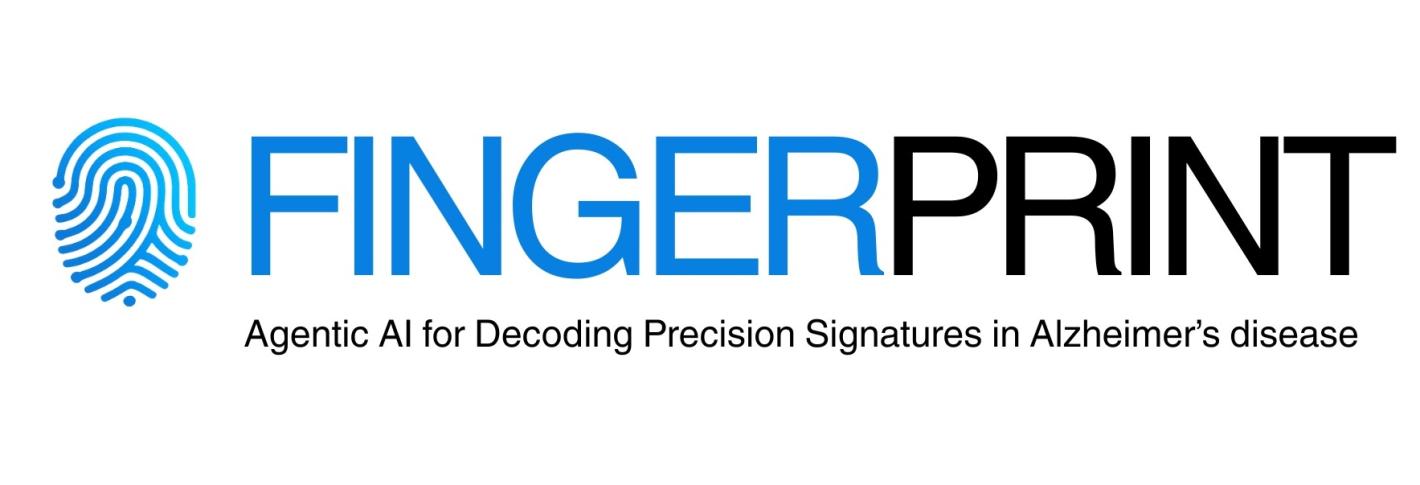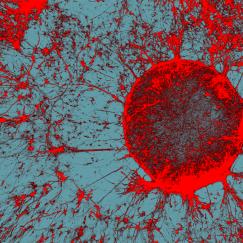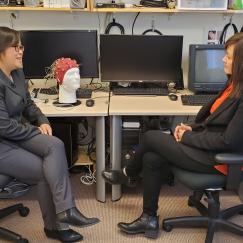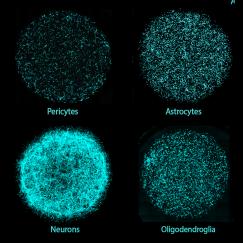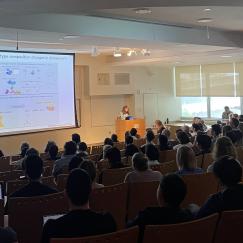A team of engineers, physicians, and scientists centered at MIT has advanced to the semi-final round of a competition established by Bill Gates and Alzheimer's Disease Data Initiative to spur the application of agentic artificial intelligence technology to the global problem of Alzheimer’s disease. The team is one of 10 to reach the stage out of almost 200 global teams.
The team’s proposed project competing for the $1 million “Alzheimer’s Insights AI Prize” is called “FINGERPRINT.” It would develop and employ an “Agentic AI” to simultaneously analyze genomic, proteomic and clinical data to better spot important signals of what might cause and drive the fatal neurodegenerative disease and to identify new molecular targets for therapeutic intervention.
“This is a dream project,” said team member Li-Huei Tsai, Picower Professor at MIT and director of The Picower Institute for Learning and Memory and the Aging Brain Initiative. “We and others have generated large amounts of data from control and ADRD subjects, including single-cell genomics, proteomics and lipidomics. The agentic AI approach will accelerate the identification of disease subtypes and new targets for intervention, and unveil why certain individuals are resilient to age-related neurodegeneration, using these valuable resources.”
The team consists of Tsai, from MIT’s Mechanical Engineering Department Professor Giovanni Traverso, Dr. Adrián Noriega (team lead), Arvid Gollwitzer, Daniel Mukasa, Isaac Tucker, and Deepak Subramanian; and from Karolinska Institute and FINGERS Brain Health Institute, Professor Miia Kivipelto, Anna Matton, and Ludivine Morvan. FINGERPRINT also includes industry partners, Alamar Biosciences, and Novo Nordisk. Additional partners include Yale University, Brigham and Women’s Hospital and The Broad Institute.
The project builds on Kivipelto’s landmark FINGER study in cognitively normal but at-risk older adults, and the global WW-FINGERS network it inspired, which is bringing precision-prevention together with next-generation AI-driven discovery.
FINGERPRINT will incorporate proteomics data (e.g. measurements of levels of different proteins in individuals at risk of Alzheimer’s disease and related dementia and healthy controls) and also look at genomics and biomarker databases. It will also incorporate data from the WW-FINGERS studies, which include more than 40 prevention trials in more than 70 countries, gathering data about what physiological, diet, or behavioral factors might stave off the disease.
In all, Noriega says the team’s vision is to make FINGERPRINT “an agentic AI platform that autonomously identifies Alzheimer’s drug targets and personalized prevention plans.”
The FINGERPRINT team will present in the semifinals at the Clinical Trials in Alzheimer’s disease (CTAD) 2025 in San Diego on December 5th, with finalists to be announced in Copenhagen in March 2026.


